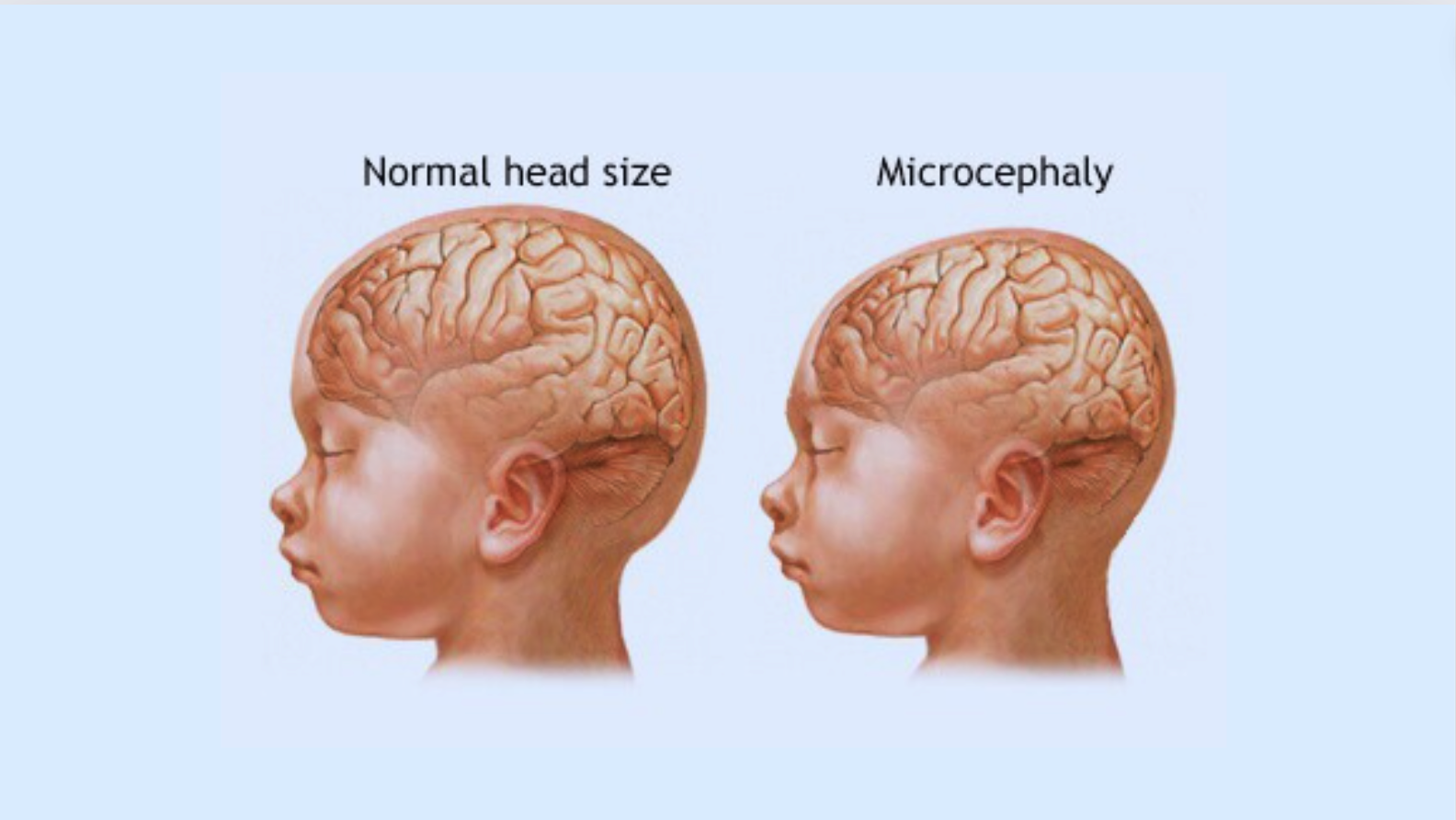Microcephaly

- 30 May 2024
Why is it in the News?
A study recently revealed that a gene called SASS6 and its variants have been implicated in a developmental process that causes microcephaly.
What is Microcephaly?
- Microcephaly is a condition where a baby's brain and head do not develop properly during pregnancy or after birth.
- While rare, it can have profound impacts on a child's cognitive and physical abilities.
- Several factors can disrupt normal brain growth, including infections the mother contracts while pregnant, exposure to toxic substances, genetic disorders, lack of proper nutrition, and injuries before or around the time of birth.
- Infants with microcephaly are born with abnormally small heads compared to others of the same age and sex.
- This small head size indicates an undersized brain.
- As they grow older, many children with microcephaly experience significant developmental delays and disabilities.
- Common symptoms include intellectual disability, impaired motor skills and speech, vision and hearing problems, seizures, and unusual facial features.
- Some cases may show no obvious symptoms at birth, only for challenges to emerge over time.
- Treatment: Unfortunately, there is no cure for microcephaly itself.
- However, early intervention programs, therapies, and educational supports can help manage symptoms and maximize the child's developmental potential within their abilities.
- While microcephaly's causes are varied, maintaining good health before and during pregnancy gives a baby the best chance for proper brain growth.
Preventing prenatal infections, avoiding toxins, getting prenatal screening for disorders, and ensuring adequate nutrition all reduce microcephaly risk.
